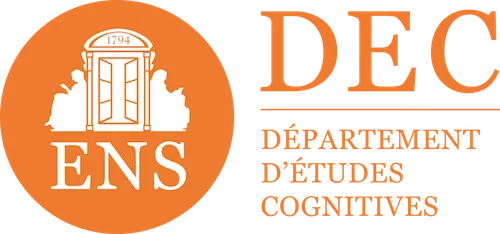

Intra- or inter-company training: what do you really need?
Faced with the growing needs for skills development, choosing between intra-company and inter-company training is becoming strategic. This decision has a direct impact on the effectiveness of training and the professional development of your employees.
Let's find out how each type of training can meet your specific needs and optimize your training investment.
The different types of vocational training
Before analyzing the differences between intra-company and inter-company training, let us recall that there are several training modalities. Face-to-face learning remains the majority, but distance learning and blended learning are developing rapidly.
In-company training can take different forms depending on your goals. Each modality offers its advantages according to the context and the personal development needs of the participants.
Contrary to popular belief, the choice of the type of training directly influences learning. The precise definition of your needs will guide you towards the optimal solution.
Intra-company training: what is it and what are the advantages?
Definition and conduct of internal training
Intra-company training exclusively brings together employees of the same company on its own premises. This training takes place according to a program adapted to your specific activity.
The trainer (internal or external) provides his knowledge in a personalized way. Each exercise is carried out according to your daily professional reality.
The intra-company training session generally takes place on your premises or in a dedicated room. The service provider adapts the process according to your administrative constraints and your annual schedule.
The benefits of intra-company training for your staff
In-company training offers maximum customization of training content. The training organization adapts each session to your corporate culture.
The flexibility of organization makes it possible to adjust dates and location of training. You can consult your teams to organize training at the optimal time.
This formula facilitates the development of a homogeneous group sharing the same working methods. Interns benefit from training organized specifically for their site.
When should this type of training be preferred?
Opt for intra-company transactions during transformations requiring a strong alignment of your employees. Changes in methods or internal tools particularly require it.
This training offer is perfect for confidential topics. Your sensitive data remains protected within your company.
Inter-company training: what is it and what are the advantages?
How does inter-company training take place?
Inter-company training brings together participants from several companies in an external training center. The organization sets the location, dates and indicates the general program in advance.
This training generally takes place on the provider's premises or a dedicated center. Each intern can register individually according to their development needs.
The trainer offers standard content but enriched by the diversity of the audience. Inter-company training sessions offer a framework conducive to exchanges between professionals.
Who can participate in inter-company training?
Inter-company training participants include employees from various companies, but also job seekers and the self-employed. This mix particularly enriches learning.
Unlike intra-company training, the public is not homogeneous. This diversity is precisely the main advantage of this modality.
Each participant can register according to their personal needs. Interns from various sectors offer new perspectives on each exercise.
The benefits of sharing experiences
Professional development is enriched by exchanges between employees of several companies. This openness facilitates innovation and natural benchmarking.
Shared knowledge is more than just a training program. The professional network created often lasts several years after the session.
Detailed comparative table: cost and organization
How to choose a course adapted to your needs?
Precisely analyze your training objective
Training management starts with defining your exact needs. Evaluate the number of employees concerned and their function in the company.
Identify if your need lies in its ability to develop specific skills. Internal processes generally require a targeted intra-company approach.
Evaluate your organizational constraints
The availability of your staff directly influences the choice. Inter-company training allows the departure of training courses to be staggered over the year.
Administrative and budgetary constraints also guide the decision. Each formula offers advantages according to your particular context.
Calculate the ROI according to the chosen modality
The effectiveness of training is measured differently depending on the format. Intra-company can generate a better ROI through the direct application of knowledge.
Inter-company training is excellent for innovation and openness. Skills development is enriched by imported external practices.
Optimize your training with Didask's educational AI
Transforming internal training with AI
Our platform relies on educational AI to transform your internal expertise into structured courses. This solution aims to facilitate the creation of training content more quickly.
Adaptive learning technologies make it possible to automatically adjust the training program to the level of each learner. Even within the company, each employee can benefit from an individualized career according to their function.
Concrete scenarios are based on your real activity. Learning by error, validated by cognitive sciences, promotes a lasting anchoring of knowledge.
Enrich inter-company sessions through personalization
La training platform Didask (with LMS and Author tool) proposes combining the advantages of both training modalities. Inter-company participants can access modules customized according to their company of origin.
Individualized follow-up aims to maintain the commitment of learners over time. The reminder and support functionalities support everyone's personal development.
This innovative approach offers the flexibility of inter-company with the relevance of intra-company. Your training organization can thus offer optimized hybrid courses.
Conclusion: towards a hybrid training strategy
The choice between intra-company and inter-company is no longer binary in the current context. Successful companies now combine the two according to their development goals.
Educational AI opens up new possibilities by allowing customization on a large scale. It facilitates organization while aiming to maximize the impact of each training session.
Didask supports this transformation with an approach based on cognitive science. Our platform adapts to your constraints while optimizing the development of skills.
Ready to transform your training strategy?
Make an appointment directly with our eLearning experts for a demo or simply more information.












